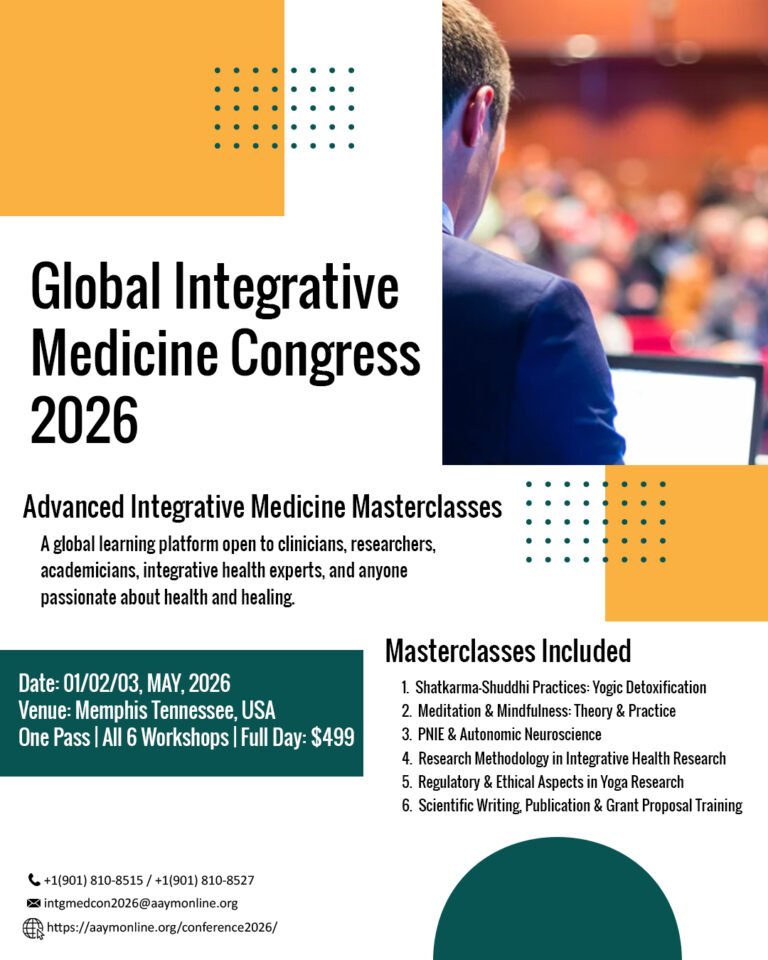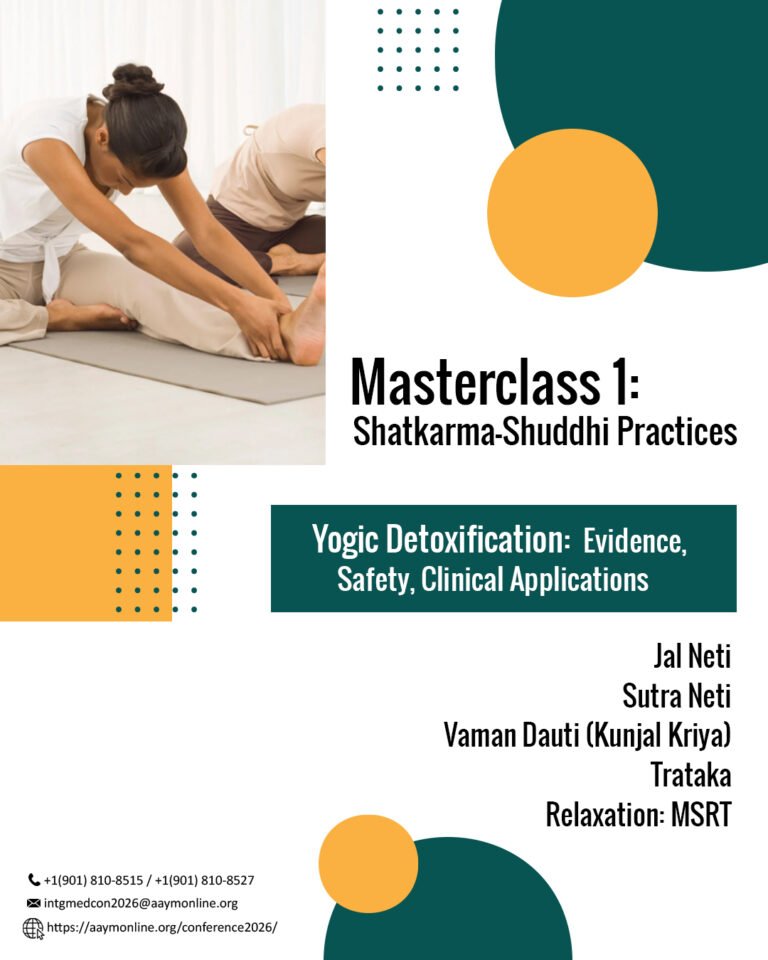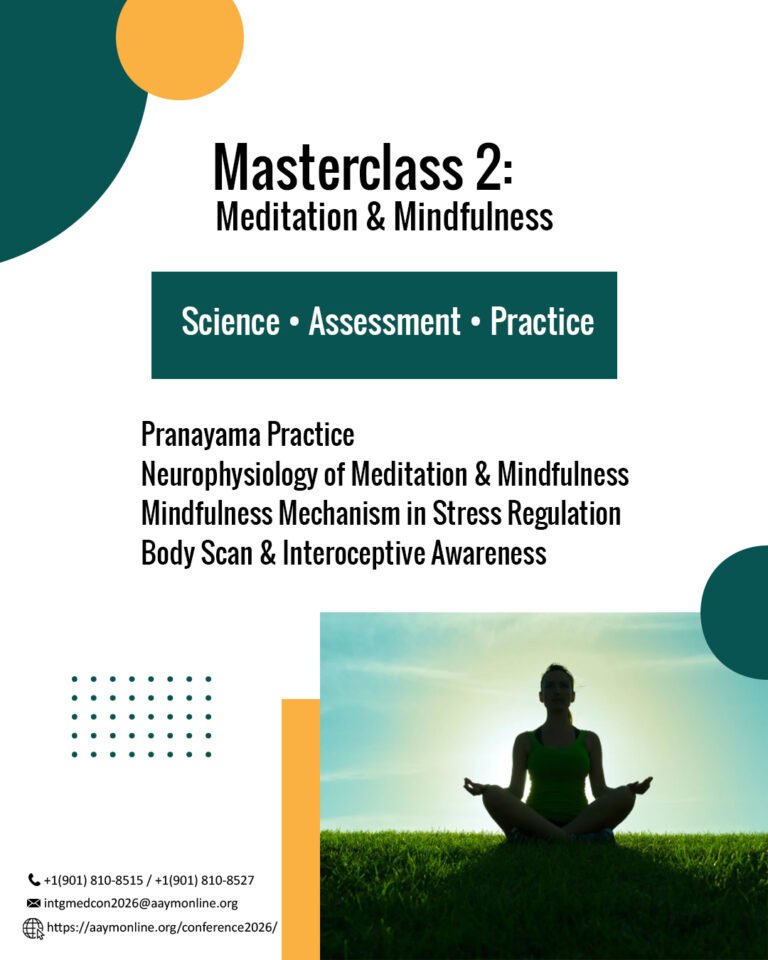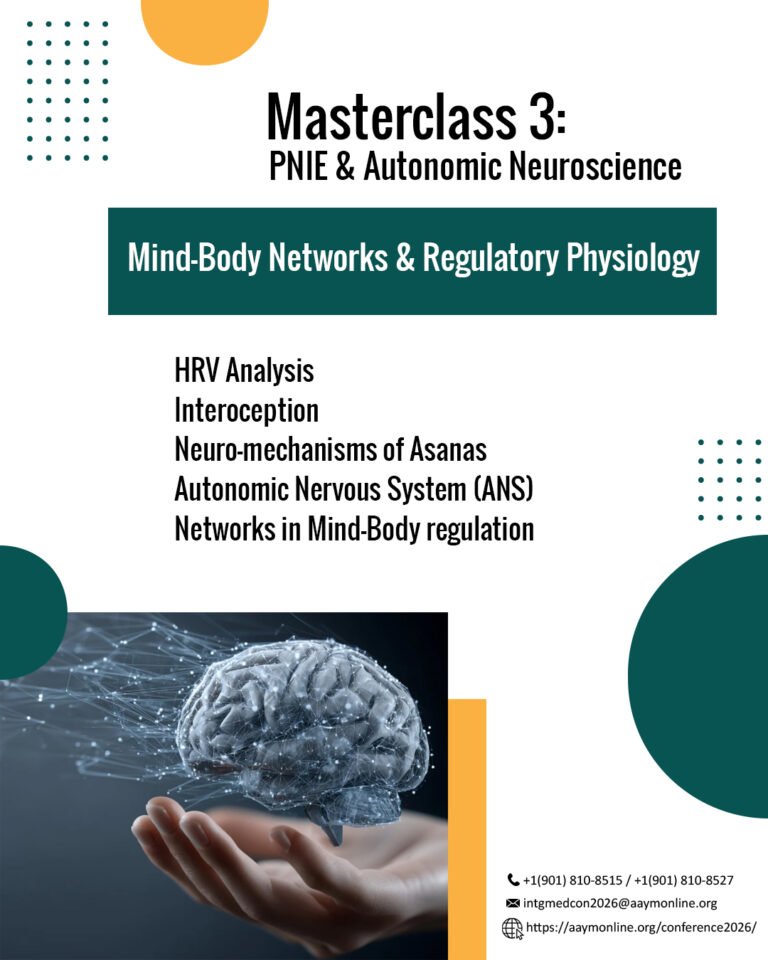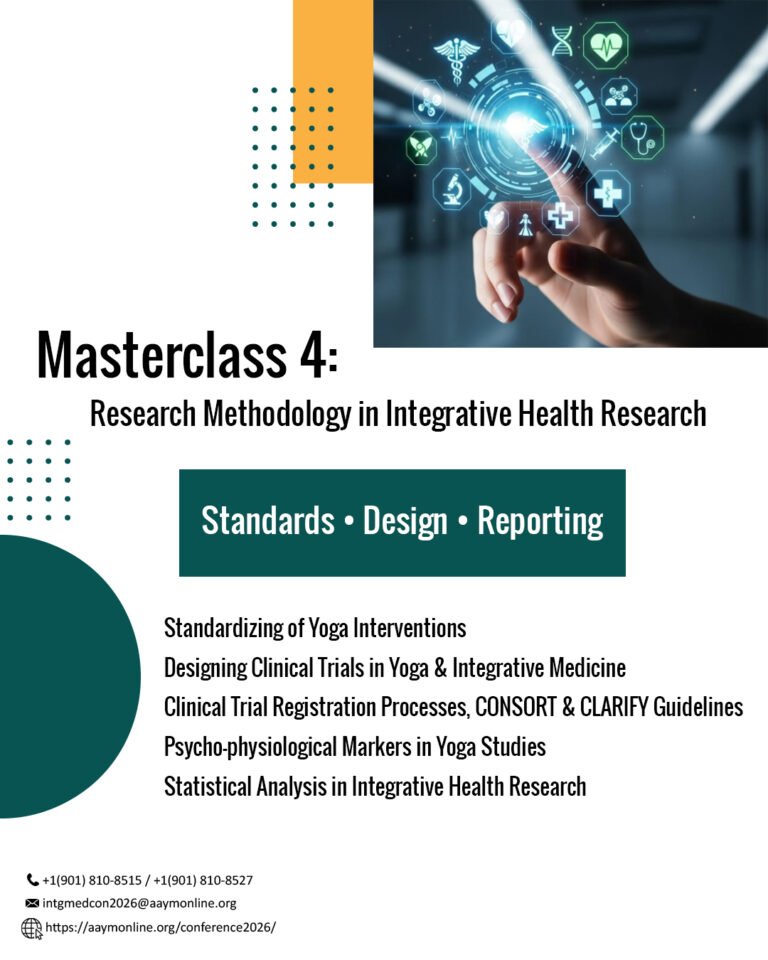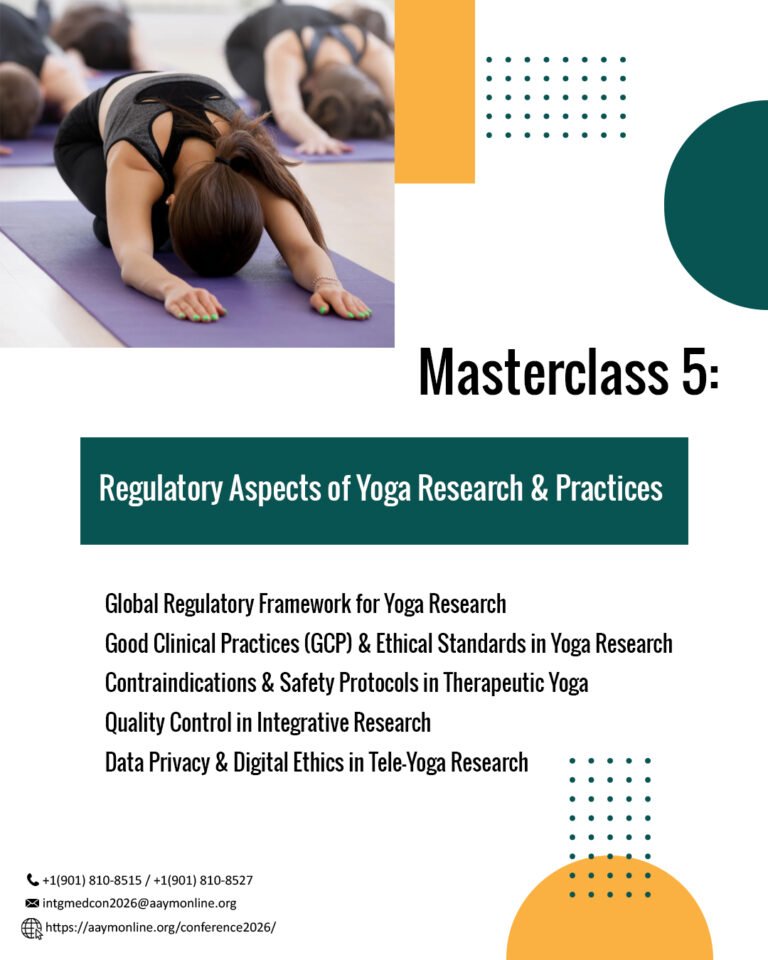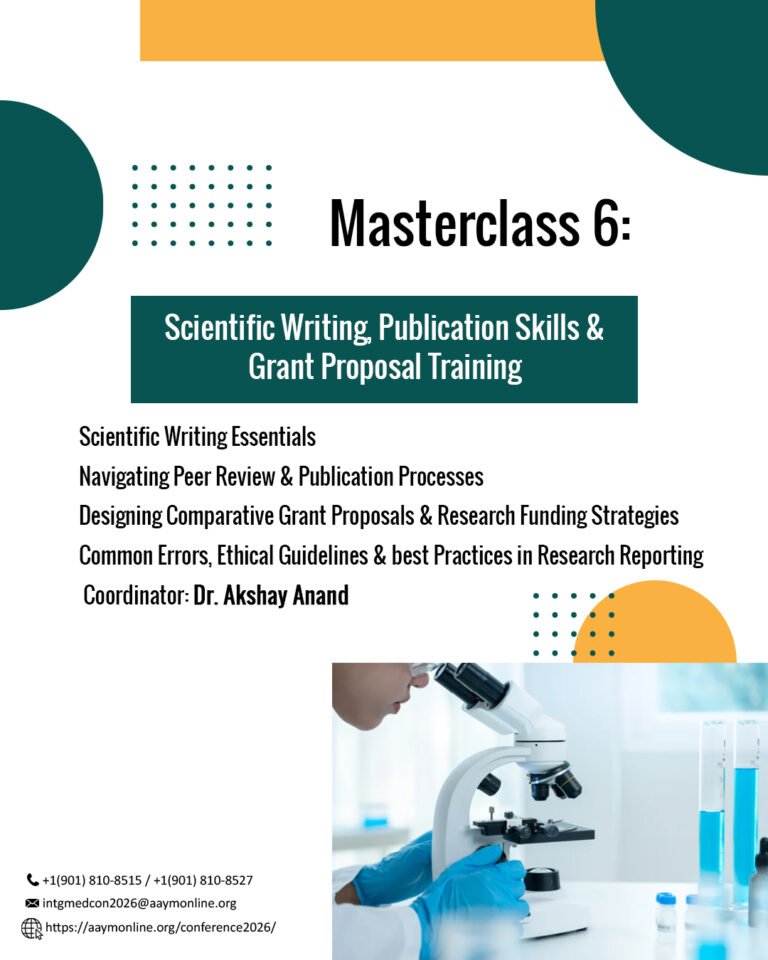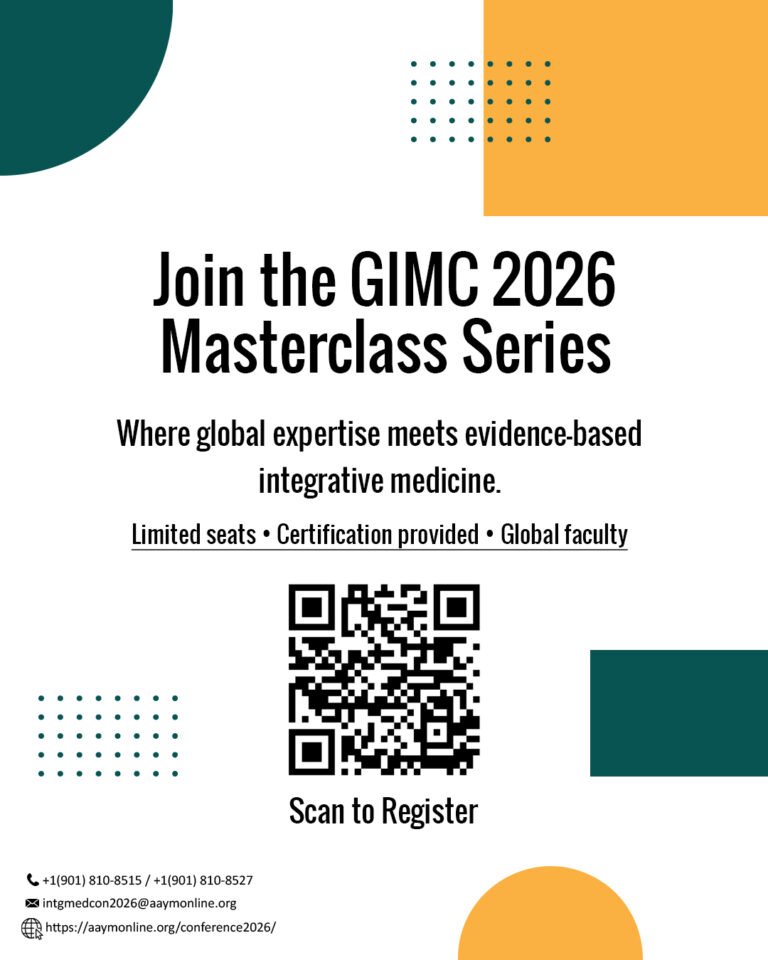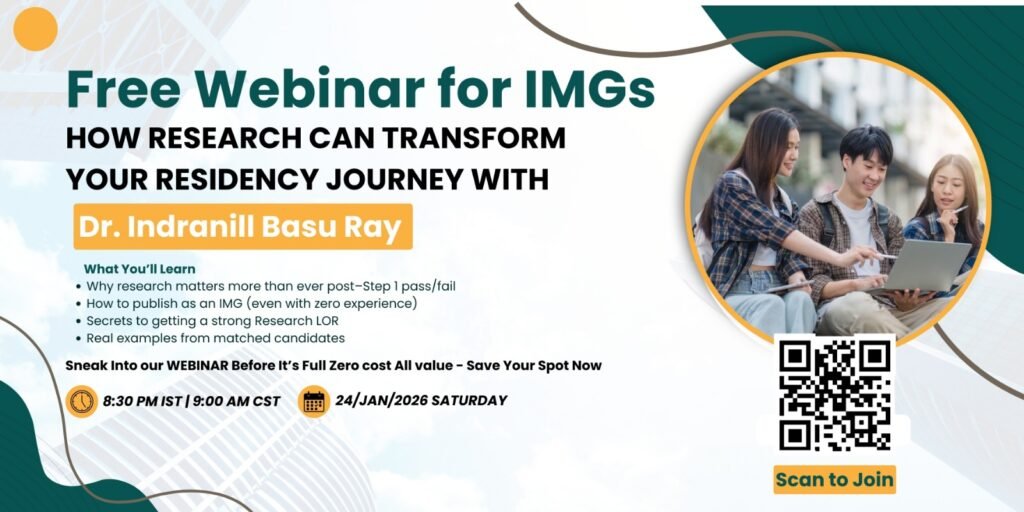-
U.S. States Open New Licensing Pathways for Foreign-Trained Physicians: What IMGs Must Know
-
AMA’s Updated “Road to Residency” Guide 2025
-
USMLE Step 1, 2025 Update: New Patterns, New Pressures, and How to Adapt Fast
-
USMLE Is Restructuring Its Entire Administrative System in 2026: What Every IMG and U.S. Graduate Needs to Know
GIMC 2026
Global Integrative Medicine Congress 2026
Join leading researchers , clinicians and medical professionals from around the world to explore cutting-edge integrative medicine research and clinical innovations.

- 1-3 May,2026
- Memphis , Tennessee, USA
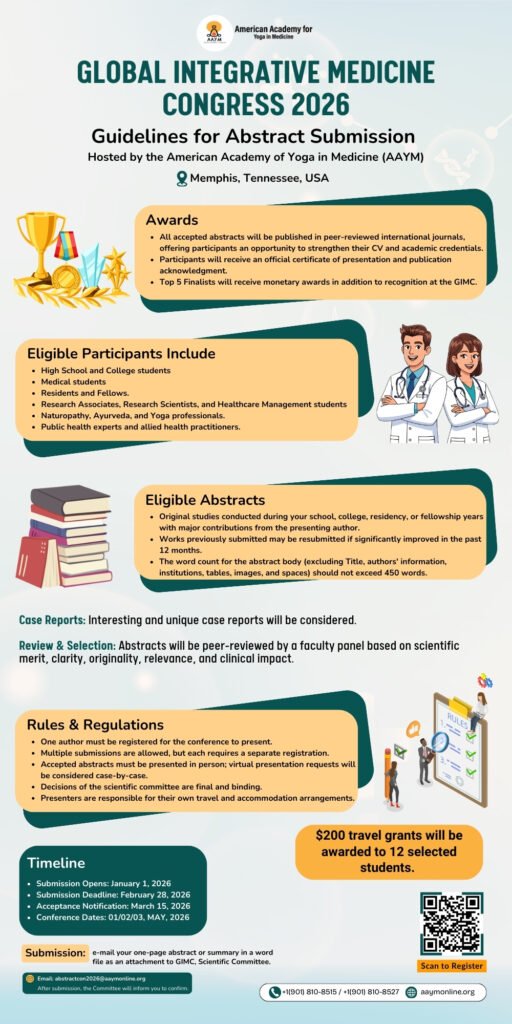
Call for Abstracts
We invite high-quality research abstracts across all domains of integrative medicine, including Yoga, Ayurveda, clinical applications, diagnostics, rehabilitation, and emerging technologies. Share your research, innovation, or clinical experience with an international audience of medical professionals, scientists, and integrative health experts.
- Yoga & Ayurveda Mechanisms
- Neuroscience & Mental Health
- Cardiopulmonary & Metabolic Health
- Oncology & Immunology
- Diagnostics, Wearables & AI
- Chronic Disease & Rehabilitatio
- Women’s and Pediatric Health
- Public Health & Integrative Policy
- Traditional Medicine & Evidence-Based Practices
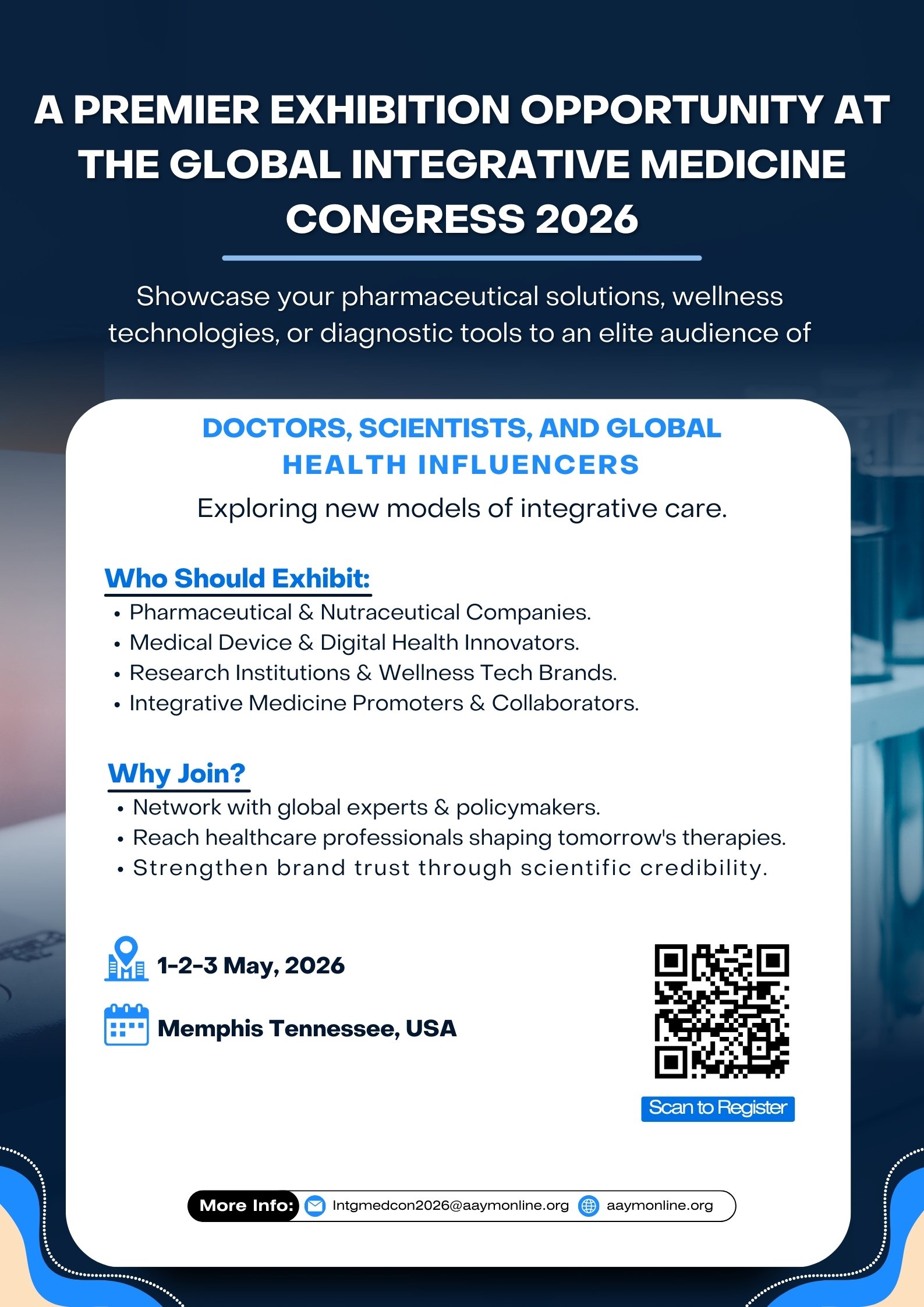
A Premier Exhibition Oppurtunity at the Global Integrative Medicine Congress 2026
This is more than a conference , it’s a convergence of medical innovation, research , and real-world impact.
Showcase your pharmaceutical solutions , wellness technologies , or diagnostics tools to an elite audience of doctors , scientists, and global health influencers exploring new models of integrative care.
From Research to Residency: A Proven, Structured Program for Global Medical Graduates & USMLE Aspirants
Designed for medical students and USMLE candidates, this all-in-one program offers a clear, structured path to securing a U.S. residency. Gain access to expertise from certified professionals, one-on-one mentorship, and research and publication support to strengthen your CV — all tailored to help you stand out in the sea of residency competition. Take the next step toward your residency goals with confidence.
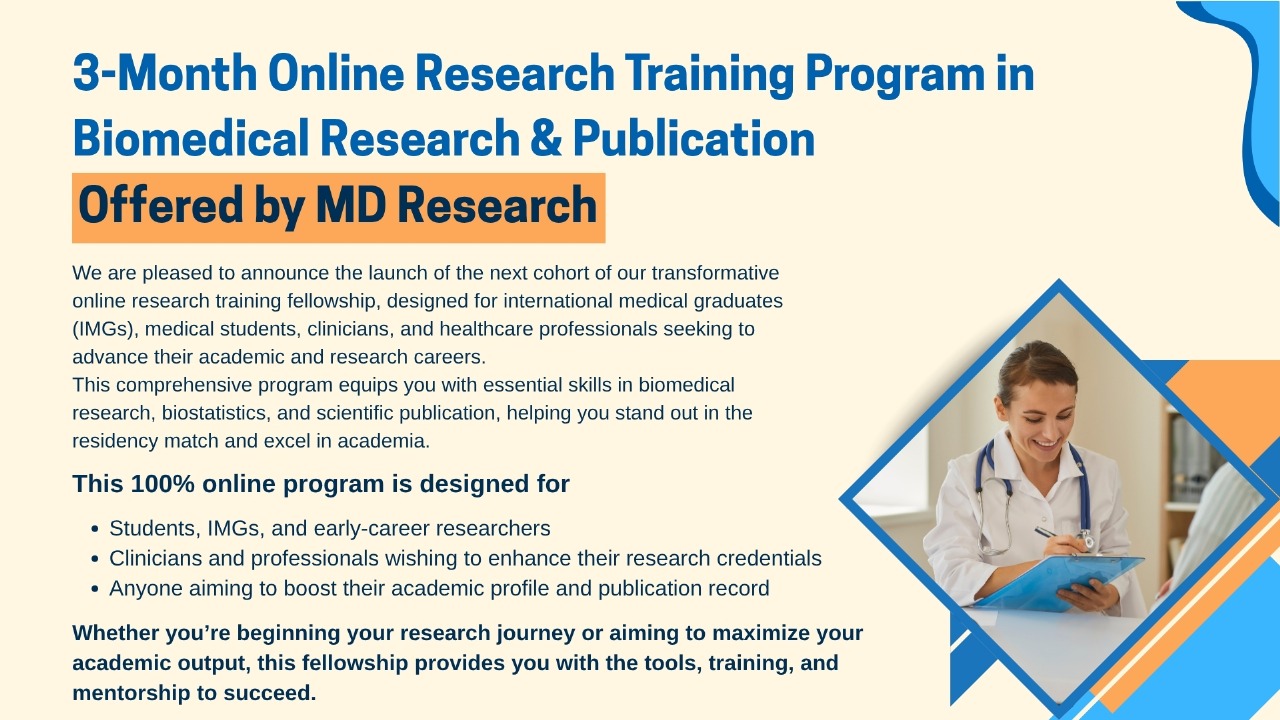
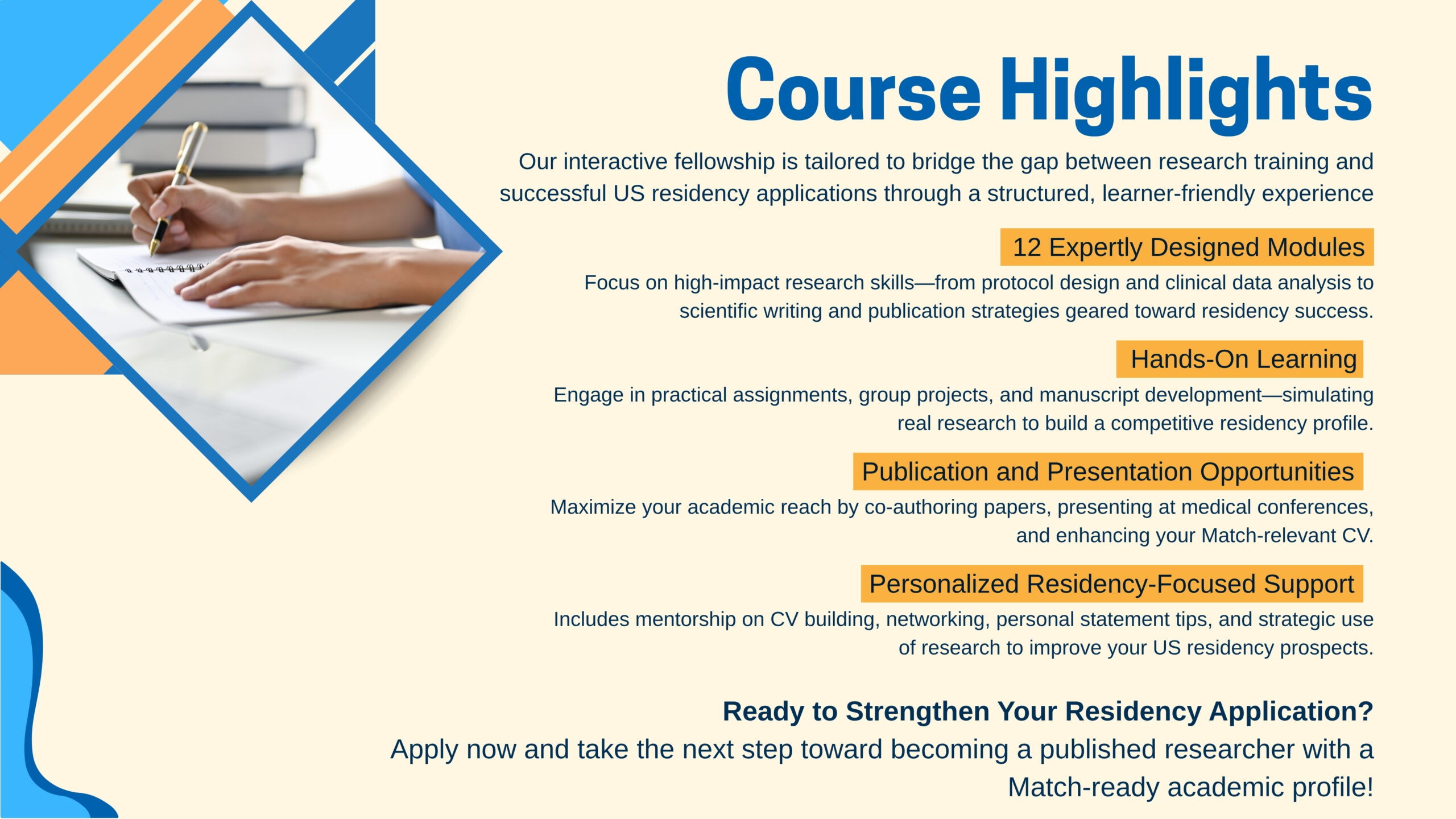
COURSE OUTLINE
Medical Research: From Concept to Publication
This in-depth course equips participants with fundamental clinical research skills,providing hands-on experience in collaborative research projects , It also prepares students to confidently discuss their research expertise during residency interviews , demonstrating their invlovement and understanding of the research process.
Modules 1-4
- Introduction to the course.
- introduction to Research Methodology and Biostatistics.
- Research Design and Clinical Trials.
- Exploring Data and Concept of Probability.
Modules 5-8
- Biostatistics Part-1 Fundamentals and descriptive statistics.
- Biostatistics Part-2: Inferential Statistics.
- Biostatistics Part-3: time Statistics and Diagnostics Statistics.
- How to conduct and write Systematic Review.
Modules 9-12
- Basic understanding of metaanalysis.
- Steps of conducting metaanalysis.
- Statistical interpretation of meta analysis.
- Network meta-analysis.
Student Voices
I had a great experience of research while being a part of MD Research US organization under Dr. Basu Ray .
Research was a completely new concept for me . After joining the course which began in June , I learnt what exactly does the research mean, what are the types of research , aims and objectives of research , how to proceed with systematic review and meta analysis . I also learnt the hands on use of softwares like Rayyan , Jamovi . I even learnt how to extract data and analysis the data and prepare forest plot and funnel plot using the available data and the software .
All the mentors were extremely patient and knowledgeable explaining all the concepts and topic very clearly. They made the learning sessions interactive as well . They were always ready and available to answer all the questions and concerns with clarity.
I truly thank Dr. Basu and his team for knowledge I gained through this course .
I really enjoyed my research experience with UsmleSarthi under the guidance of Dr. Indranill Basu-Ray. I learned so much throughout the training, and every step of the process was a great experience. The support team was always there whenever we needed help, which made the process smooth and enjoyable. Together, we authored an excellent paper that we submitted to top medical journals, which makes me especially proud of this experience. Dr. Basu-Ray not only guided us through the research but also shared valuable advice for our future as doctors and answered all our questions with great patience and openness.







Telerotation Program Roadmap: Build Expertise, Publish Research, Stand Out in the Match
1st Week: Case Presentation & Clinical Case Reporting in Rounds
Subtopics:
- Principles of Effective History Taking:
- Techniques of History Taking:
- Introduction to Clinical Examination:
- Hands-on Practice:
2nd Week: Journal Club
Subtopics:
- Structure of a Clinical Case Presentation:
- Effective Presentation Skills:
- Understanding Bedside Manners:
- Team Collaboration:
3rd Week: Mortality Conference
Subtopics:
- Purpose and Importance of a Journal Club:
- Steps to Prepare for a Journal Club:
- Presentation Techniques:
- Critiquing and Feedback:
4th Week: Applied Critical Thinking & Supervised Patient Encounters in Clinic
Subtopics:
- Components of a Patient Note:
- Documentation Best Practices:
- Integrating Bedside Observations:
- Practice Sessions:
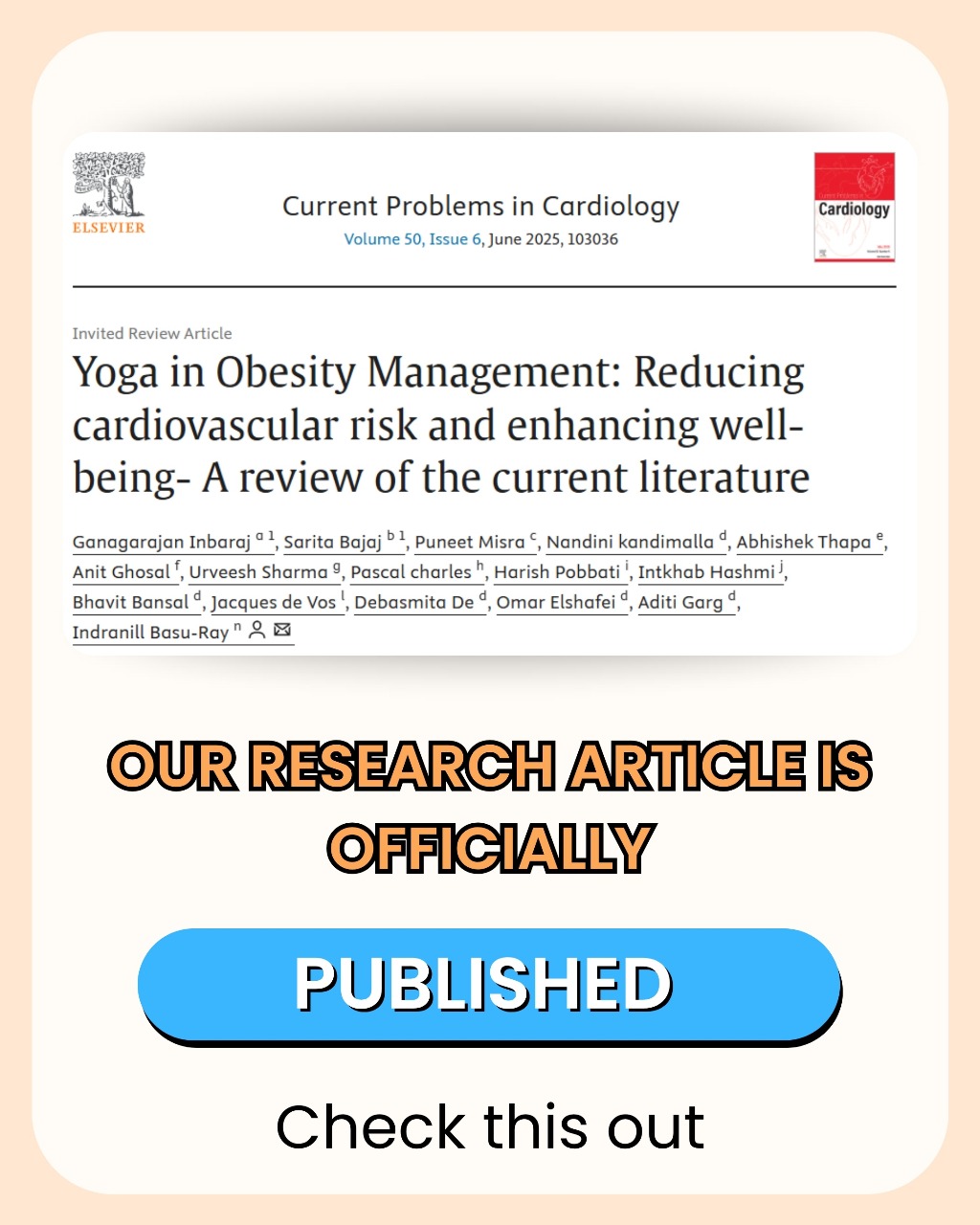
Recent Publication
Huge congratulations to our Students on the publication of our article:
“Yoga in Obesity Management: Reducing Cardiovascular Risk and Enhancing Well-being – A Review of the Current Literature”
- Published in Current Problems in Cardiology!
- Read it here: https://doi.org/10.1016/j.cpcardiol.2025.103036
Letter of Recommendation
Our Letter of Recommendation recognizes the dedication, growth, and research contributions of graduates who have successfully completed our research training program. This LOR reflects their research capabilities and strengthens their interviewing capabilities.
Why Choose MD RESEARCH ?
Research Made Easy :
Our structured course , recorded modules, live classes , and expert-led mentorship help you grasp medical research.
Increase Your Residency Match Chances :
A strong research background increases your chances of matching into top residency programs.
Publish in Top Journals :
Strengthen your CV by publishing in reputable journals with our step-by-step guidance.
MD RESEARCH Updated Pricing Options
We understand that each student has different needs. Whether you’re looking for a full learning experience to publication or simply work for your research to have your name on a publication, we’ve created flexible options to support your journey.
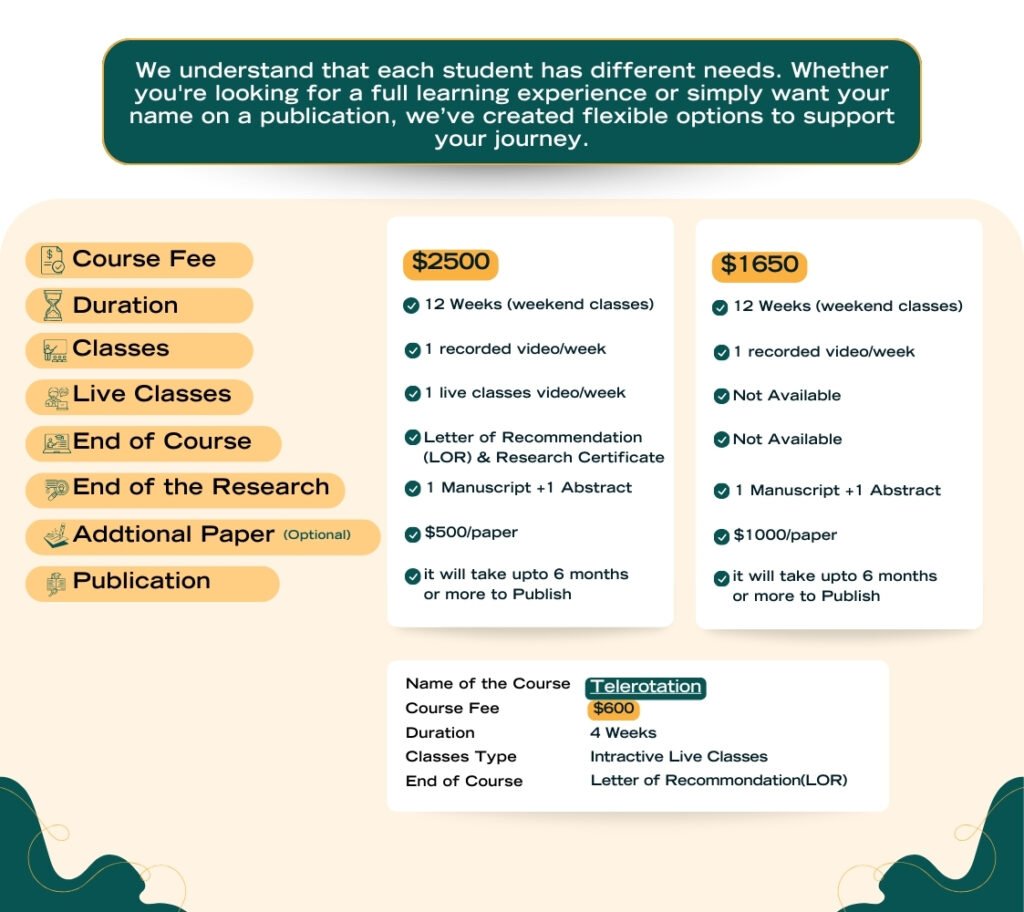
Your Pathway to Residency Success
Research Training program for USA Residency – Empowering International Medical Graduates.
Live, Interactive 12-Week Classes
Engage in dynamic online sessions.
Strong Letter of Recommendation
Enhance your residency application.
Ongoing Community Support
Access guidance even after program completion.
Comprehensive Training
Learn the entire research process, from planning to publication.
Expert-Led Instruction
Train under certified research professionals.
Our YouTube
Follow us on Instagram
Don’t miss out on cutting-edge research updates, join our WhatsApp group today!

Get in touch with mdresearch team to start your Residency journey!
- contact@mdresearch.us

